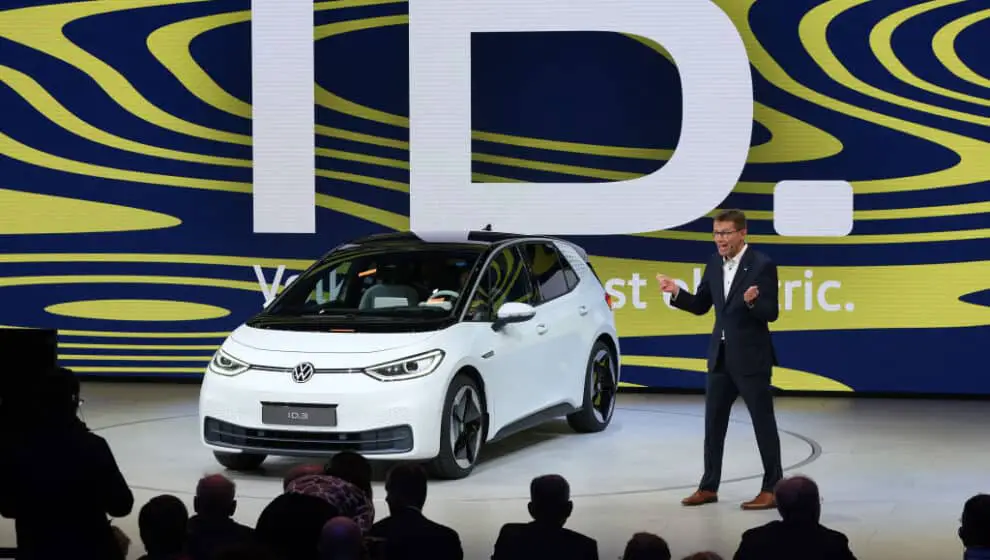Volkswagen plans to invest nearly $200 billion in electric vehicles (EV) to increase sales primarily in the U.S. and China and compete with other EV manufacturers.
Key Details
- Volkswagen is investing $200 billion over the next five years, with 68% of that investment, or about $131 billion, going toward EV production to boost EV sales.
- The German company is now planning for every fifth vehicle sold globally to be fully electric as early as 2025.
- The company aims for a 10% EV delivery share in 2023 with its new electric launches, including the ID.3, ID.7, ID.Buzz, and Audi Q8 e-tron, according to Electrek.
Why it’s news
EV competition is getting increasingly active as more companies introduce more electric models.
Research groups LMC Automotive and EV-Volumes say that EVs grew to a 10% market share of the global automotive industry in 2022. Higher demand in Europe and Asia has spurred greater demand for EVs, resulting in the sale of 7.8 million new units, a 68% yearly increase from 2021. EVs represent 11% of European sales and 19% of Chinese sales, LMC notes. They represent 25% of new German cars.
China is the leading EV market, with 3.5 million EVs sold in 2021 compared to only 667,731 in the U.S. The U.S. has been pushing for EV adoption and has increased sales by around 65% from 2021 to 2022, reaching nearly 1 million EVs sold last year.
Annual EV spending hit $388 billion in 2022, a 53% rise from the year before, according to Bloomberg writer Colin McKerracher. Including the $388 billion in spending added from 2022, the total value of EVs sold to date has reached over $1 trillion.
Global auto sales typically reach around $2.5 trillion annually, but considering EVs are a relatively new market, the $1 trillion in spending is significant.
Volkswagen is investing nearly $200 billion in EV production to boost sales and compete with other manufacturers that are benefiting from money issued from the Inflation Reduction Act.
As EV competition heats up and more companies push for adoption, Volkswagen numbers slipped, but the company is investing billions to reach high sales once again.
“We have set clear and ambitious targets and took necessary decisions to streamline processes,” says CEO Oliver Blume. This year “will be a decisive year for executing strategic goals and accelerating progress across the group.”
China is the company’s largest market, but sales fell 41% in January and only accounted for 33% of the company’s worldwide sales. Volkswagen has lost sales to Tesla and Chinese manufacturers such as BYD Co.
The company is investing billions into EV production, including battery manufacturing, to get sales rising once again and to better compete with Tesla and other EV markets.
The EV market is very hot in China, causing multiple companies to offer price reductions, so customers will choose their cars, including VW, which dropped prices after remaining steady for months.
The new investment is also aiming to boost VoW sales in the U.S. after numbers have been slacking. The company reported just 301,069 total sales in the U.S. for 2022, down from 375,031 in 2021, a 19.7% drop year over year.
The U.S. has thousands of car options and many new electric vehicles that have hit the market, which VW says has hurt its presence in the country. With the billions of funding and numerous new VW EVs hitting the market over the next five years, the company hopes once again to be a leader in the states and China.

